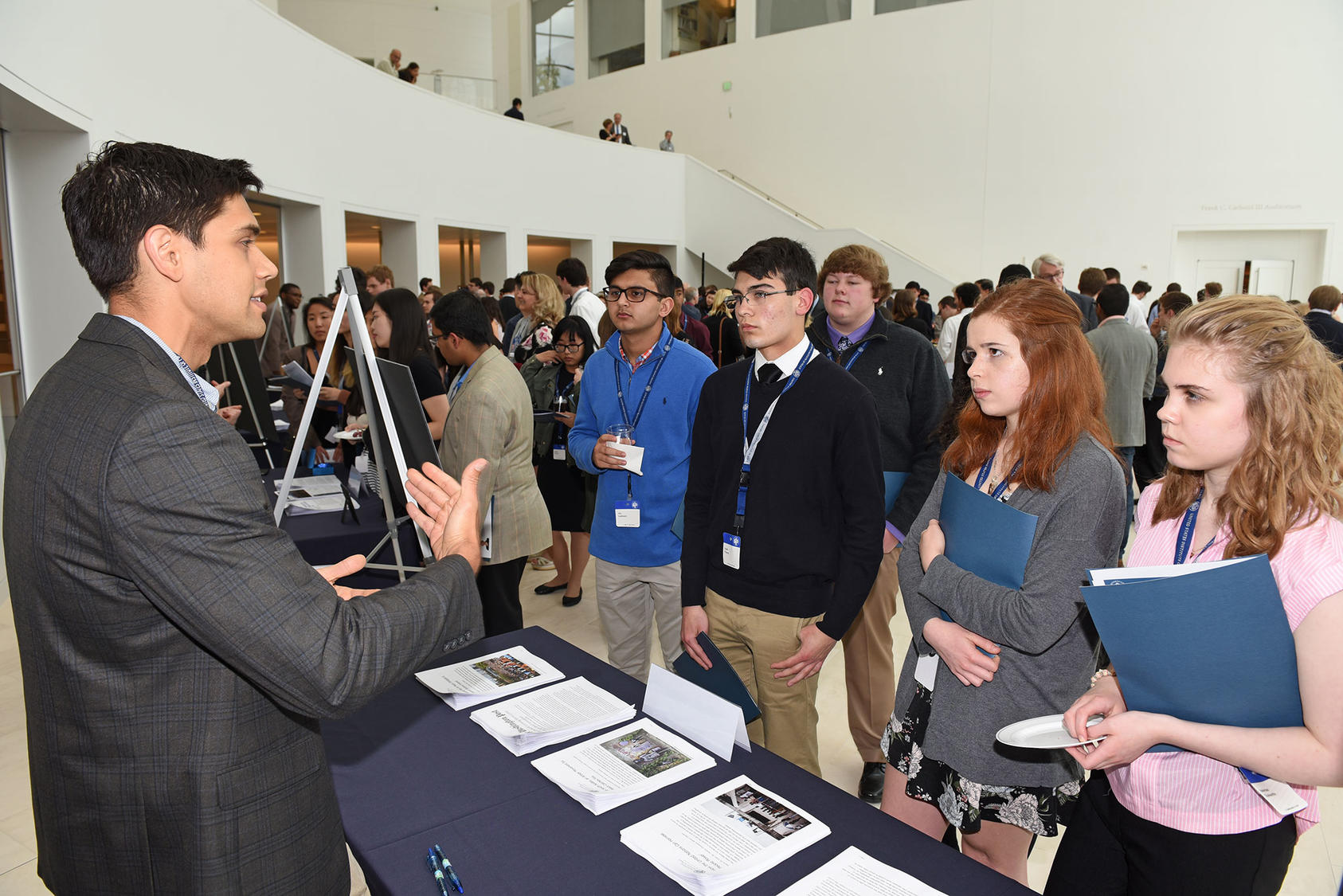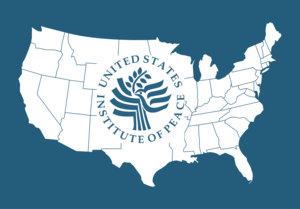Public Education at USIP
A USIP Fact Sheet
Grounded in its founding mandate from Congress, and complementing its work to build peace internationally, the U.S. Institute of Peace (USIP) serves the American people directly, providing resources and ways to engage, and overall helping to expand the American public’s understanding of the U.S. role in peacebuilding around the world.

Indeed, the American public played a significant role in USIP’s creation in the first place. In the 1970s, everyday Americans spurred on congressional leaders who had served in the devastating wars of the 20th century, supporting their pursuit of a national institution that would help the United States manage and resolve international conflicts.
Today, as a new set of violent conflicts dominate international headlines, it is as important as ever to highlight for the American people the range of practical options that exist to make peace possible, and examples of peacebuilding in action.
This is especially important for younger Americans, who have come up after 9/11 and know only a world where the United States is engaged militarily overseas and threats of terrorism and extremism loom large.
USIP is a resource for the government and for the American people, demonstrating this country’s commitment to peace through practical action. Since the move to its iconic headquarters near the National Mall in 2011, USIP has had a dedicated public education and national outreach program, focused on educating a broad public audience about how international conflicts can be resolved without violence, how peace is achieved, and why it matters.
What We Do
The Public Education program works with schools, universities, national networks, and local organizations across the United States to share USIP’s mission and work, and provide opportunities to learn and engage.
Areas of Focus
- Engaging K-12 schools nationwide with educational programs on USIP’s work, year-long initiatives that include contests for high school students and the Peace Teachers Program, and additional USIP resources that teach about international conflict resolution and show how peace is possible.
- Reaching broader public audiences—including local organizations and universities—through initiatives that educate, engage, and inform Americans across the country about USIP’s work around the world.
- Programs for public visitor groups to USIP (*happening virtually during COVID-19) that introduce USIP’s mission and work to new audiences, and highlight the symbolism of USIP’s headquarters presence on the National Mall as part of the Peace Trail on the National Mall resource.
- The Peace Day Challenge, which every September 21 engages schools, universities, organizations and individuals across the United States in marking the International Day of Peace with learning and action as part of a broader global campaign.
Reach and Impact
The Public Education program has connections in more than 1,800 K-12 schools and with hundreds of universities and dozens of local organizations covering all 50 U.S. states.
- Since 2011, the Public Education program has served over 40,000 people through educational programs held at USIP, online or in local communities, introducing them to the critical role the United States plays in reducing violent conflict around the world.
- Each year, outreach activities bring USIP’s experts and resources to schools and communities in every state:
- Contests for students engage at least 5,500 school-age Americans over the academic year.
- Programs for educators directly reach over 500 teachers from across the United States each year.
- Partnerships with national organizations connect USIP with diverse audiences nationwide, from students to retirees.
- In 2020, the Peace Day Challenge inspired activities in more than 40 U.S. states and the District of Columbia.
The Public Education program brings USIP’s work to audiences across the United States. In the year before COVID-19, this included visits to schools and communities in over a dozen states—from Alabama to Alaska to Tennessee, and beyond. Combined with onsite programs at USIP, virtual outreach activities, and flagship year-long programs, USIP serves the American public in all 50 states.





